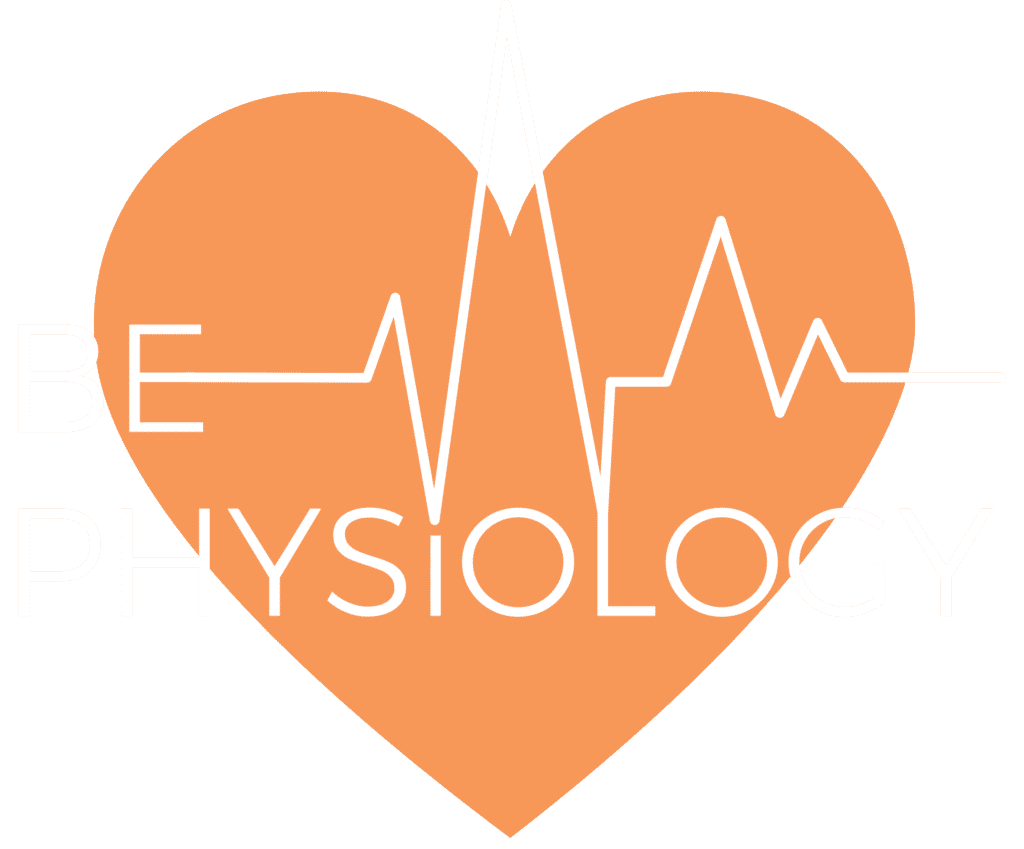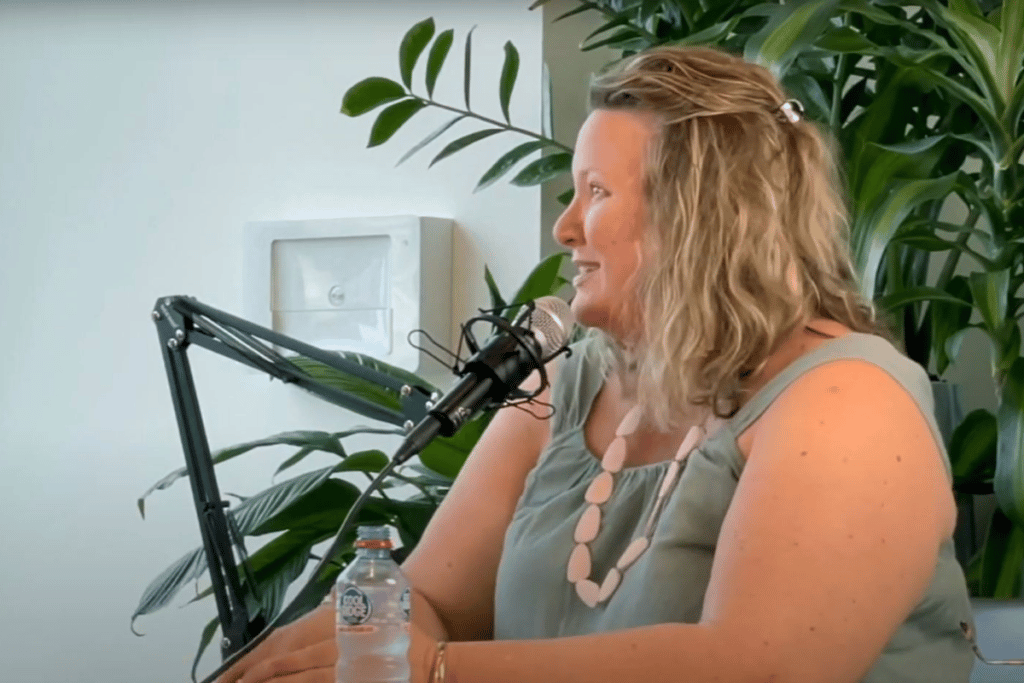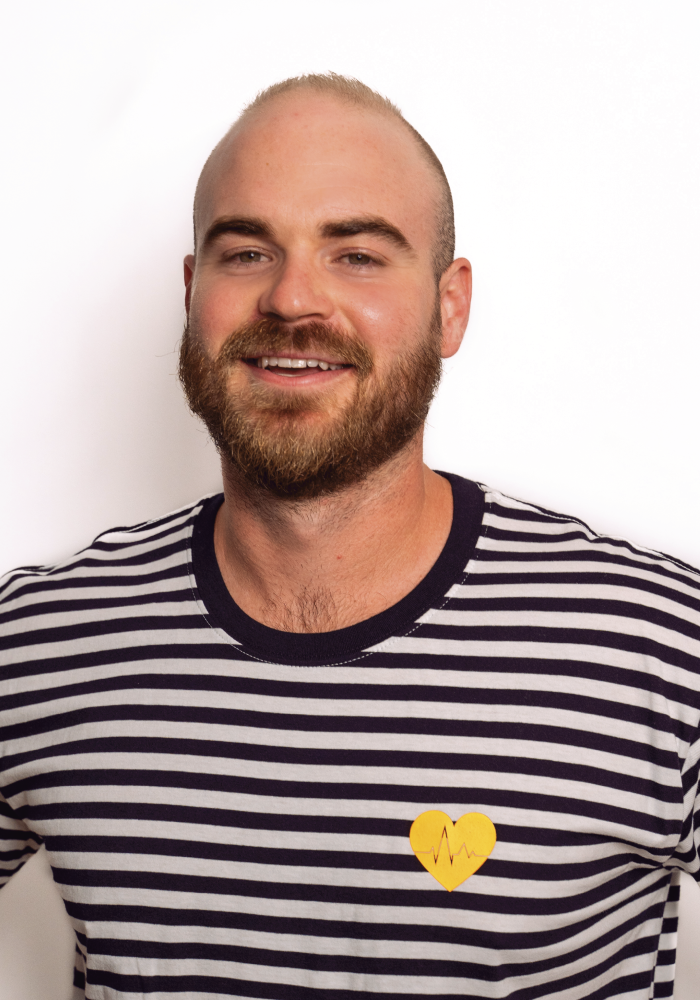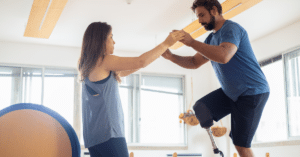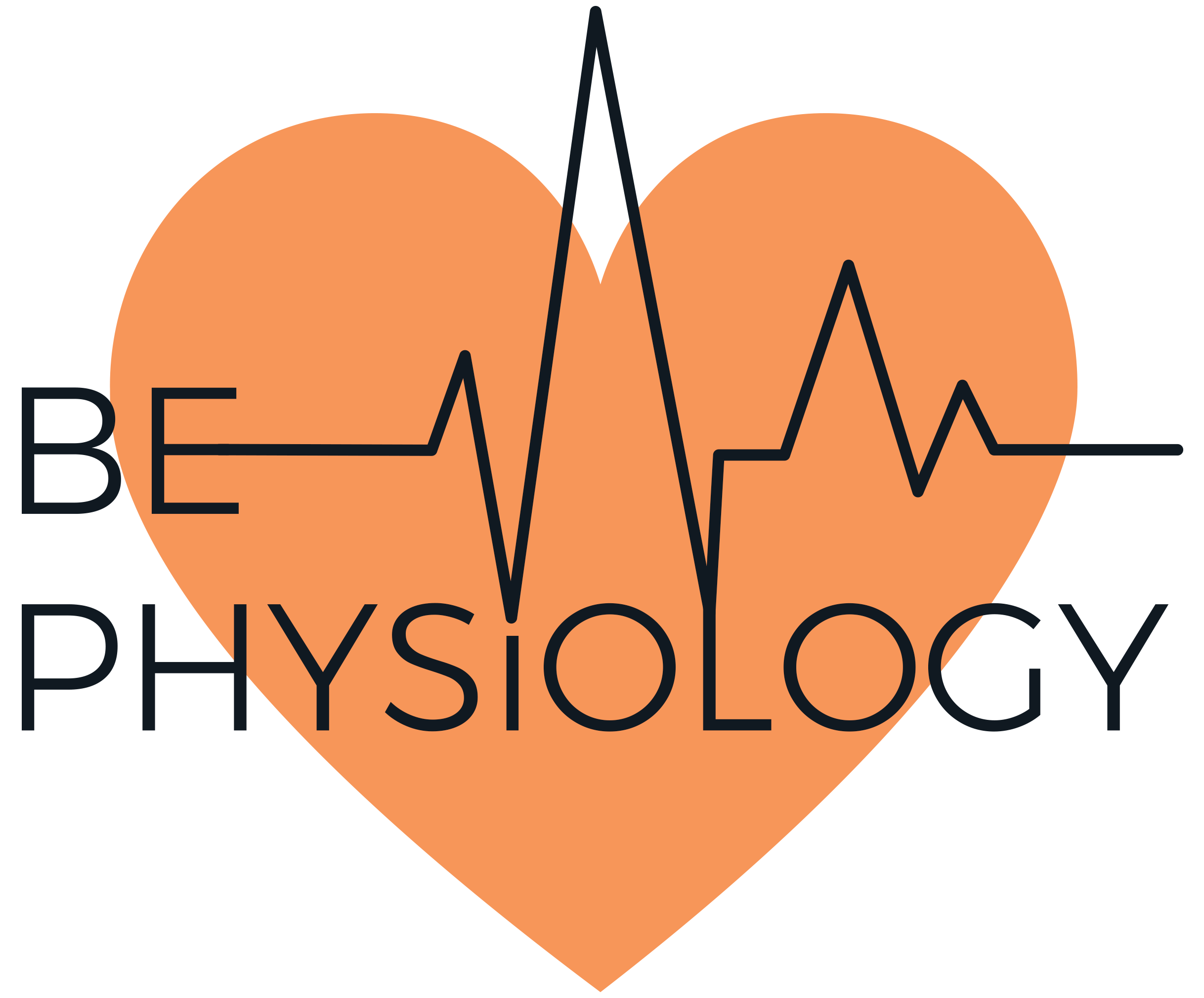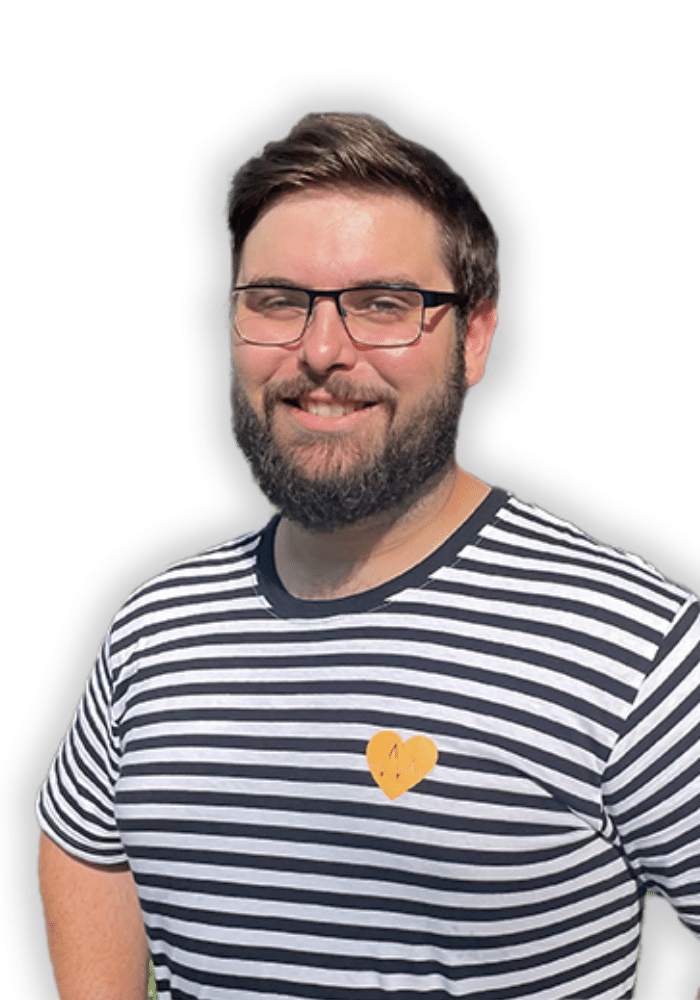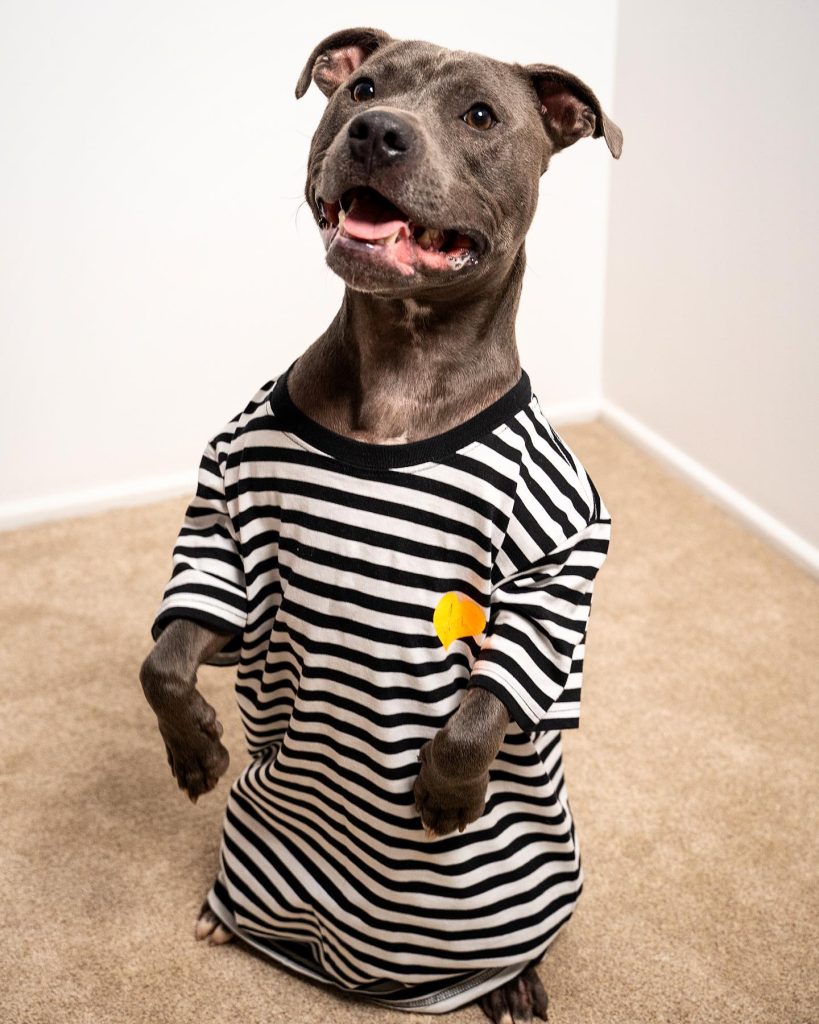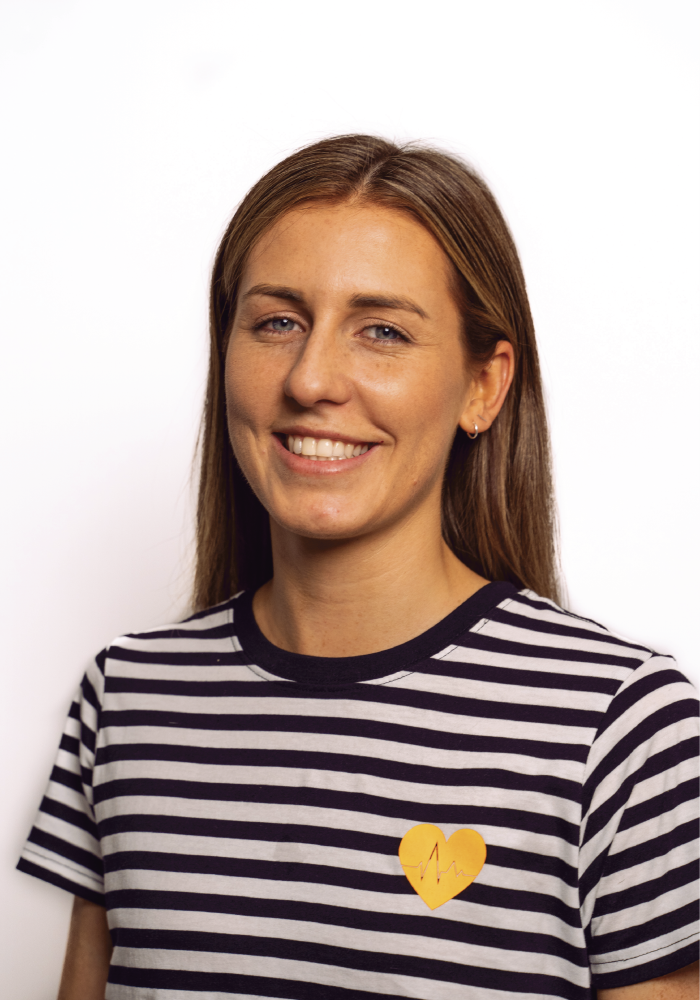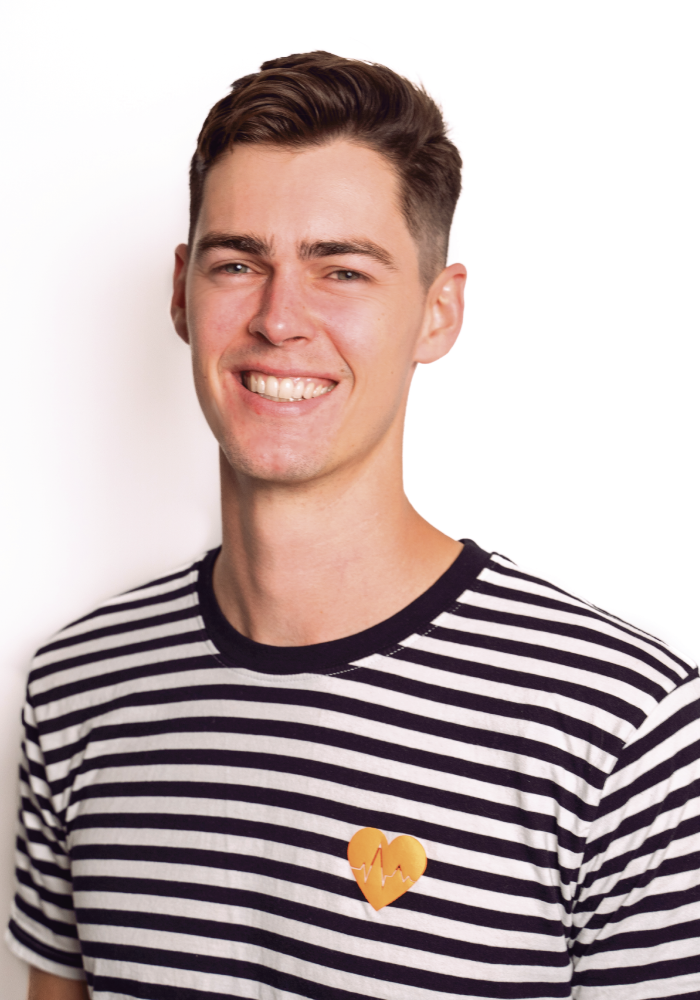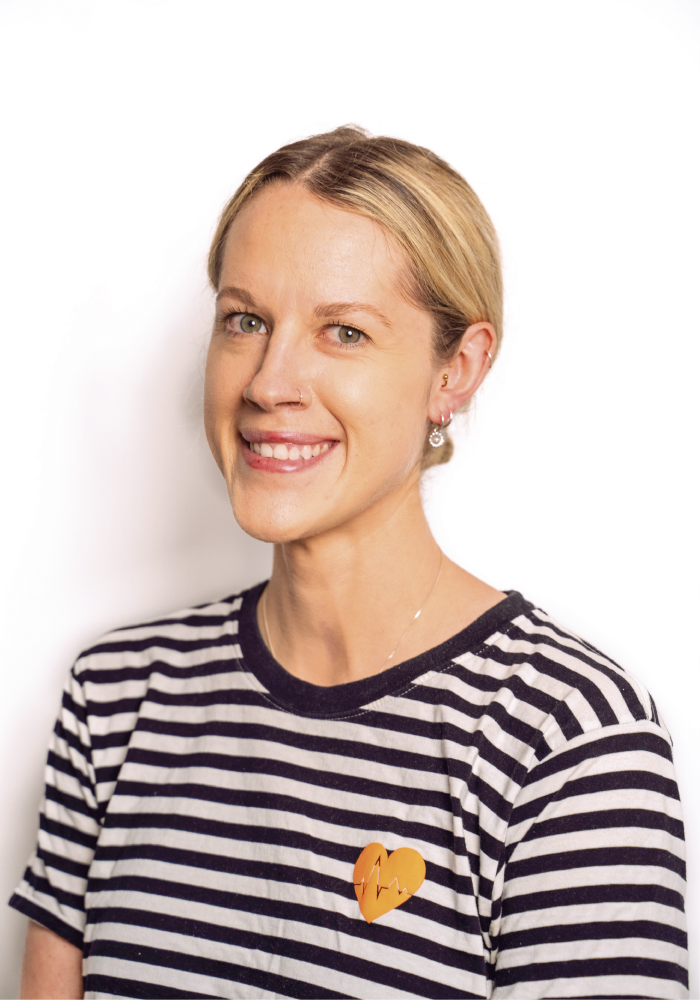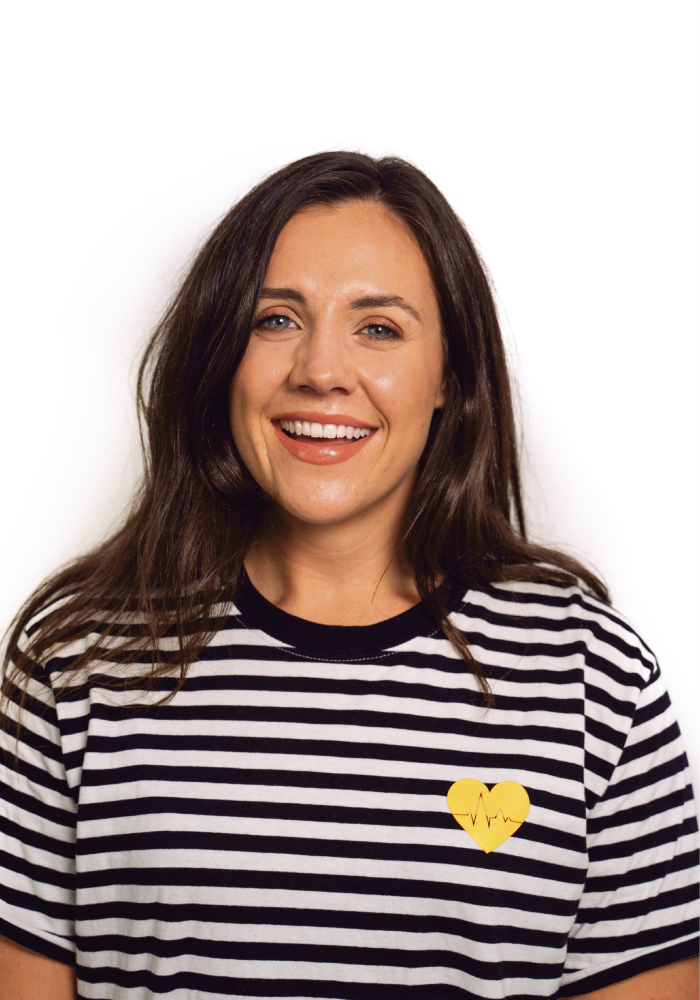What’s their role, and why are they so important? In this episode, we sit down with Michelle, an NDIS Support Coordinator, to hear all about the part she plays in disability support.
Michelle has always had an affinity for helping people meet their needs. When her son, Tom, was born with multiple disabilities, she realised how overwhelming the world of disability support could be. Sometimes it’s a complex and time-consuming procedure just to access the NDIS in the first place!
After facing several obstacles – including a misdiagnosis which forced them to restart the entire process – Michelle decided to help other people navigate this journey.
Michelle explains how a Support Coordinator links people with services and fills gaps in their knowledge of the NDIS. She is “the other woman” (Michelle said it, not us!) which eases the pressure off families and carers.
Listen in to hear the perks and pitfalls of the NDIS and learn how to gain access to the support scheme. Find out how Michelle ended up screaming ‘Aussie, Aussie, Aussie’ in her wedding dress (spoiler: it was that one time Australia won the Bledisloe Cup).
We loved hearing Michelle’s stories, and we know that you will too!
[activecampaign form=22 css=1]
Transcript
Hello, and welcome back to another episode of the underwear podcast by Be physiology. So sit back and enjoy this episode of B stories, where we get to chat with Michelle, who balances her role as an NDIS support coordinator with being a parent to a child, living with a disability. Michelle. Thank you so much for joining us on our podcast today.
First question that we ask everybody who comes on this podcast is what is the name of your autobiography? Yeah, I really like this question. Um, the name of my autobiography would be different equals different. And then in little writing underneath, it would say it doesn’t equal wrong. Right. Let me think about that.
You got it, buddy. I got it. I’m picturing I see maths equations now. I like wrong road. Hey, wrong road. Okay. It’s a big title. Different equals different. Yeah, I like that. I’m I’m, that’s cool. Keen to unpack that. I like that. Yeah. It’s a good thing to unpack. Yes, let’s do that first. All right then. So I say that all the time.
Mm-hmm and I’ve said that to my kids from when they were. Um, I used to say it to grace before Tom was born. And then when Tom was born, he was born with disabilities mm-hmm um, and it actually worked out really, really nice. Yeah. Right. Because he was different. Yep. And different equal different it didn’t equal wrong.
Yeah. So, and that’s been such a big part of our lives. And a lot of my philosophy when I see someone doing something different doesn’t mean it’s wrong. Yeah. Just means it’s different. Yeah. Hmm. That’s I, and that’s definitely something that I, I it’s exposure with those type of things I feel as well because when, when I was, you know, only when I was younger finishing school, whatever, my, these little things like that, wouldn’t.
Hit me as nicely as it does today. Just that feeling of yeah. Different does equal different, you know, it does. And you don’t know until you’ve met different. Yeah, exactly. Right. Yeah. Yep. You don’t know. And it was something that I’d always said, but I didn’t realize the validity of it. Yes. Yeah. Until I actually had someone different in my life and he’s taught us so much.
So, and it was just really good having an older sibling who was. She was, you know, advanced for her age. Mm-hmm as a kid. Um, so she met all her milestones really early. Uh, whereas he wasn’t, so it was just like, well it’s okay. Yeah. It’s okay. Cuz it’s just different. Yeah. And that explaining it to her. She really understood it, which was good as a kid.
What say age difference between grace? Uh, two years. Okay. Yeah. So not very much, but you know, differences were like grace, she sat, crawled and walked at six months old. Right. Which is that early Brittany, that’s really early. that’s really early. Cause I come from a child development background, so I was like, right.
Okay. You’re a freak. Yeah. Right. Because she was until I was like one. Yeah. Oh, okay. She makes sense. Okay. Yeah. She’s very impatient. My daughter impatient. I can imagine. Yeah. Yeah. And then Tom didn’t walk or smile until he was about two. Right, right. Mm. Wow. That first smile would, I didn’t know. Smiling was a thing that, uh, it was like its own milestone.
It’s a real milestone. Yeah. So babies normally start smiling at you probably between three and six months. Yep. Um, cuz they start recognizing they can see better. Whereas Tom didn’t have the ability to smile. Right. So I used to try and say to people, I’ll give you a hundred bucks if you can make him smile.
Yeah. Yeah. yeah. And his sister ended up getting that a hundred dollars, right? Oh, no way with what do you remember? Pardon? Did anything in particular that did it, or? I don’t think so. I think she was just talking to him one day and she just cracked a funny and went to run at him and he laughed at her. I don’t wanna ruin that moment for you, but that sounds like a fluke, that try.
AJ has all this material. He really likes dad jokes at the moment, so, oh God. Yeah. I can’t. To be telling dad jokes at an appropriate age. Yeah. Cause I’m already into it. Yeah. Yeah. It’s a skill. Yeah. Yeah. Yeah. And when the glove fit fits, you know, it’s like perfect. Yeah. I think that I’m brilliant. thank.
Yeah. I found myself hilarious. So what about when people don’t laugh at your jokes so age? It doesn’t matter. I can’t tell. Cause I’m laughing so much. He’s he starts laughing before he tells the joke up. He get it out. He’s. Like little chuckle in his head and they’ll say the thing and you’re like, yeah. So, you know, it’s good before.
Yeah. Yeah. You already know that you’ve gotta be laughing. And so that let down when they don’t laughs really bad. Oh yeah. It’s you just forget about those? Yeah. Wipe that you go hundred bucks for me. yeah, that’s good. So Michelle, take us back. Uh, what’s your, what’s the backstory. Oh for me. Yeah. How far back do you want me to go?
As far as you want? Um, I’m the youngest of five kids. There’s a big gap between me and my brothers and sisters. Um, so it was like, I was treated like an adult most of my life. Right. I didn’t necessarily have those going out wild days because I had too many parents involved. Right. Yeah. The overarching.
Yeah. Okay. Yeah. So, um, I I’m not much, much different to what I was then to tell you the absolute truth. I just have a lot more experience now. Yeah. Right. Which is really good. But I ended up, I wanted to be an arch architect. Mm-hmm um, but in those days, girls couldn’t do tech drawing at school and that was a prerequisite for going into architecture.
What being a boy. I I, I had no. Well, yeah, now you did have to be a boy cause you weren’t allowed to do tech drawing as a girl. Jesus gotcha. At my school. So I know I’ve been a picture here. Haven’t Michelle’s an 80 years old. Sometimes Michelle feels old um, but no, I’m not like, you know, I finished high school in 89 mm-hmm so that was in the eighties that girls still weren’t doing.
Boy jobs or boy things. So I did typing and home EC and I did, you know, cooking and yeah, yeah. And making clothes instead of doing tech drawing, which is what I really wanted to do, cuz I was really into my art. So I did art and film and TV at school and yeah. Did really enjoyed that. Um, and then I didn’t really know what I wanted to do then sort of through me.
So I went and did early childhood teaching. So that’s that child development background? Yes. Cool. Um, and from there though, I didn’t actually do my first year of teaching, so then I went into business. Right. Okay. And so working for other people as a sales rep yep. As manager of different. Sections of that, um, regional manager in north Queensland as well for the same company.
So, and then I had my kids, so right. Yeah. That was that’s my backstory. Yeah. Cool. Yeah. So where’s the link between that? Oh, so business was then support coordination and that’s like under that umbrella there or no, no. Well, when I had, when I had grace, I stayed, um, working as a manager of a region. And then when I had Tom.
Um, because he had a list of issues and we lived in regional Queensland. It was really difficult to manage, was like we lived in a third world country because I had the child development background. I knew that he wasn’t getting the early intervention he needed. And they didn’t have the resources. There was no nothing.
Then no one was called an exercise physiologist. Right. You know, to get into a speech therapist, there was two speech therapists in town servicing 300,000 people. So, and if we wanted to get support, we were gonna have to move back to Brisbane, which is where we’d started from. Right? Yeah. So, and that’s what happened.
That’s what happened. We’d been back and forward from Makay to Brisbane 10 times, um, in the first year of his life. And then grace was about to start primary school. So we had to make a choice. Yeah. Okay. Because we just didn’t have the support network. Yep. So it was a good move. Yeah. And so when we came back, I became a teacher aid.
Right. Because I had the teaching background. Okay. Um, so I worked with children with special needs. Awesome. Yeah. Great. I’ve got very fond memories of going to the school that we went to. We had the op uh, the opportunity to get into some special schools and help out with stuff. You know, it was, it was one day.
Uh, fortnight for a few weeks or like for a few months or something like that. Yeah. Wasn’t a lot. But that experience in itself was my, my first exposure to complex disability. Ah, you know, and, and I knew, you know, at that age too, I knew that it was just fascinating to me. , I was just like, I, the, what you are, what, what you are doing and what you’re seeing is so different to what I do.
Yes. You know? Yes, yes. And it, that was kind of like a thing where I got used to, you know, not relying on people around them to say, oh, speak for them and stuff like that. I kind of got, that was in. moment. I kind of realize that, you know, it’s a person in front of you talk to that person. If someone needs to help him out, uh, they will.
So they will. Yeah, that’s exactly right. Um, we get that a lot with Tom because sometimes it’s difficult to understand him. Mm-hmm so it’s funny when you’re filling out forms and they say, does he need an interpreter? Well, he doesn’t, but the people who talk to him do. Yeah. Right. So, and that’s funny. Yeah.
And it’s funny cuz when you interpret for him the first time and just clarify what he’s just said, cuz he thinks what he said is fine. Um, and then you clarify what he said to them. They go, ah, and then they start talking to you, not to him. Yeah. Gotcha. So the focus just shifts off that’s right? Because they don’t think they, they then automatically think that he has an intellectual impairment.
Mm. Which is what he gets all the time, right? Yeah. Okay. But he doesn’t. Yeah. And as soon as you start thinking he’s got an intellectual impairment, he’s got you. Yeah. Right. I’ve gone through that, uh, small journey with Tom in terms of, um, yeah, like at the, especially the first I. Work with Tom. And initially there were certain things that like sometimes understanding Tom was a bit difficult and I’d asked Tom to repeat whatever it was that he said, and I’m getting better now as well, but it’s still, there’s like a whole gap between what I am able to understand.
And then sometimes like, I won’t get it. And Tom will turn to you and say it, and then you’ll be like straight away. And I’m like, how front side? Yeah. Trust me. His voice changed about two years ago. Yeah. And I struggled. I, I then went to feeling what everybody else feels. And it was like, I was learning to understand him all over again.
Yep. And it was really difficult. And I felt like I was failing as a parent at that time. And I would have to look to grace and say, what don’t he say? Which. Really bad. Yeah. But because his voice had dropped, it changed how everything sounded. Yes. Yeah. Yeah. Because it’s all subtle cues that you pick up on.
Yeah. There’s tiny little things that there was, um, uh, a client of mine a while ago now. Very funny, man. Uh, but he would run his words together. Like. Just duh like that. Nothing. Yeah. And at the start you are just, wide-eyed doing the, okay. I’m gonna nod and we’re gonna keep on going because you need to exercise.
And that’s the, that’s kinda the overarching thing that we have here. Yeah. But over time then, you know, I’d start to have students that would come with me to sessions and just, I could have full on conversations with him and people would look at me like, What are you, what is going on? You know? Well, you know what, when you guys become parents, you’ll realize that we call that toddler speak a lot of the time because you get attuned to your own kid or your own client.
Oh. And I think, yeah. Okay. And it just takes you a little while. Like it did with AJ was from. Yep. Okay. I know it’s really funny. Have a target baby, so we’re gonna figure it out together. oh dear. I I’ll get you a baby goat.
Yeah, that’s probably better for everybody. Cool.
So you currently work as a support coordinator for the NDIS helping people find services and things like that. Would you like to go into that a little bit deeper and just explain what that role is, I guess. Yeah, sure. Um, so I was working as a trade mm-hmm special needs, and I got approached by a friend of mine who I used to do PNC work with and she said, oh, I’ve taken on this new role as support coordinator.
Would you like to come and do it with me? And I knew a little bit about what a support coordinator did, but not a lot, sort of like an exercise physiologist. Yeah. Right. , you know, I find there’s a lot of sync there between us because. people look at, uh, the plan manager role and they think that they’re the person that helps ’em with their plan, not the support coordinator.
Yeah. Yeah. But, um, we kind of figured that out as well. Yeah. Like there’s that thing where you’re like, oh, I know, I know. And I mean, our scope of work is to link people with therapists and basically fill people’s gaps and help them build capacity on their knowledge of the NDIS. It’s really good. Cuz when I did have Tom, I remember saying to mark and it was because I think I put it out in the universe that I’ve ended up doing this job.
I said at the time I really wish someone had given me a brochure at the time of what to do because it was hard enough as a parent being overwhelmed with all the day to day things let know, let alone like planning. And knowing what to do next. Yes. Because they change so much. Yes. And you don’t really know what you need until someone suggests it, but people are hesitant to suggest it because if they give you a suggestion about what you should be doing, they could be held liable.
Right. Oh, okay. Yes. That’s what it is. Right. So this happens a lot with parents, with children with disabilities. Yeah. So I said, I wish I can help people. Parents, especially with children with disabilities. Yeah. So I ended up doing that as a teacher aid, but as a support coordinator, I have heaps more impact.
Yes. Gotcha. Right. In that scope. So I can actually help people learn what they need to do. Like simple things, like just, you know, getting carers payment. That’s a simple thing, getting a companion card. There’s all those things that we do on top of just linking with therapies that people don’t really know about.
We also help do reporting. So like, you know, we do a plan review report. Once we get all the reporting back from you guys and from the OS and all the other therapists that come in, um, we collate all that information. Then we present that to the NDIS for the parent or for the participant. Um, and it just takes a lot of pressure off.
Yeah. It’s such important work that needs to be done. and if you couldn’t imagine if that wasn’t available, it’s also cool to realize just how many ways there are to utilize in ISS funding. And that’s actually something that. Because I’m lucky enough to work with a lot of participants that you, um, do support coordination for.
And then I get this like secondhand information of ways that they’ve been able to utilize their funding. That’s how I kind of find out about all these different things that you can do with your funding. Like I thought it was strictly like, Go see an EP, go see OT and blah, blah, blah. And it’s not that at all.
Like there are so many avenues in which it can be used. Yeah. I think sometimes people get buried in the therapies and they don’t re remember that this is about achieving goals. And this is about setting your goals with the NDIS and then being able to achieve them. So we basically link you in with all the things that can help you achieve those goals.
And it’s so nice to watch people live their best life. Yeah. And actually start doing things on top of therapy. So the therapy benefits what they actually want to do. Yes. So actually reasons for therapy instead of just doing therapy. Yes. Yeah. And I will, I will say that in my experience over the last five years or so with NDIS effectively helping people, that’s, I’ve seen a lot more of that, you know, like seeing people get the cream on top instead of just always just.
Of push to the surface, they can actually enjoy themselves and go out and do stuff and, and flourish. Yeah. Yeah, absolutely. Yeah. And live their best independent life. That’s really good. And that’s what we, I think we all should be doing a hundred percent. Yeah. Yeah. And if we can do that collectively in our roles, I think that’s brilliant.
Yes. Yeah, yeah. Yeah. And I’m so glad to have ended up in a role like this because I actually have so much more impact on someone’s life and their outcomes. Yes. Yeah. Because I didn’t really get that as a trade. Yeah. Okay. Yeah. Yeah. I. I worked under direction of a teacher and I worked with students. Um, but I didn’t really get to work with the families.
And it’s something that we’ve talked about from my old work a lot. It’d be nice to include the NDIS with education mm-hmm um, because they like to remain separate. but it would be great if it was combined a little bit more and also medical. So if we bought the medical NDIS and the school together, I think we could get even better outcomes and a lot more early intervention so that they don’t need us more when they’re older.
Exactly. Yeah. Are there avenue avenues for you to push that already and start pushing that notion and that idea above to the people that can make that change and, yeah. Well, so my job’s about relationships. You know, if I don’t have the relationships with people, then I can’t really start making those changes.
So with the schools, it’s about getting in at that ground level with the principals, people can like education would be funny because sometimes they don’t want out outsiders coming in, like outsourcing, coming into schools. And I understand that, but I think it would be great. even just to have information night for parents.
Who’ve got more questions. Um, what, why, why is that? Why don’t they like, uh, outsourcing? I, I don’t know. I don’t know. Sometimes like even yourselves, I don’t know if you’ve ever tried to get access to a school, to do therapies in schools. I have known other therapists. Yeah. Um, we’ve we’ve talked about it a bit.
Yeah. Uh, we haven’t, uh, really pushed for it yet, but there, there are other institutes. Are against it that we have come across. Yeah. Yeah. And I find it interesting. I don’t know. I don’t, I don’t understand why you would ever feel threatened. Mm. Um, cuz as far as I’m concern, it takes a village to raise a child.
Yeah. And if we’re gonna do it, let’s make it really good. Yeah. Yeah. You know, let’s, let’s, let’s be the leaders in the world of, of making this change and, and you know, if people need access to the NDIS let’s have a, a group there that can help them do that. Mm yeah, absolutely. You know, cause that’s one of the hardest things for people to do is get access to the NDIS yeah.
Right. What’s that journey look like for. To gain access to the NDIS. Okay. I’ve, I’ve heard a lot of, you know, just, um, uh, anecdotal stories and things like that, but I guess your perspective you’d have a, a lot of good information maybe. Well, I think it’s probably one of the areas that they could make a lot easier for people.
Um, I. I think they were bring looking at bringing in independent assessments there for a while. There’s a bit of a buzzword about having independent assessments for plan reviews and things like that. Yes. And that’s sort of been put to the side. Oh, okay. Um, from what I’ve heard, but what I think they should do instead is have almost like an independent assessment.
Of people as they’re applying for the NDIS so that they get, say an OT or a physio coming in mm-hmm and make sort of like an ACAD assessment for aged care. They come in and they do an assessment of you. Mm. And then that determines whether you get access or not. Yeah. Instead of, and that would be free.
Yeah. Medicare covered. Yep. So like a health plan, an NDIS access health plan. Mm-hmm that they could get, you know, five different therapists to do assessments of them. Mm-hmm and then they could apply for the NDIS with those assessments. That just makes so much sense though. Yeah. Well, it would make it easier.
So what is it now? So now. You have to complete, um, you have to have a letter of diagnosis, which for some people is really difficult to get, if you’ve come through public, I’ve got a story about that. Yeah. Yeah. And, and we all do have a story about letters of diagnosis. We’ve had people who’ve had the wrong diagnosis on letters that we’ve had to get changed.
Yep. You know? Um, and that’s a really difficult process cuz as an, as an adult, you you’ve, that’s a psychiatrist. How hard is it to get into a psychiatrist? Yeah. Geez. So I’ve never tried. Neither have I haven’t needed it. Yeah. But didn’t know I did. Yeah, yeah. Either. So, but when you’re a child, it’s a pediatrician.
Okay. But that’s still only part partially covered by Medicare. So you end up, you know, spending say I’m not, I dunno what the gap is for a lot of people, but say, I’m gonna give an instance here, $250, you pay for a consultation. Mm-hmm to go to the pediatrician, if they need other, um, diag like diagnostic or evidence done that actually has to be done.
And then you have to go back to them. So that’s another fee going back to them. Of course. And you only get, I think it’s a hundred and something dollars back from Medicare. So depending on how, where you are. And with this child at that point, um, you not necessarily got a lot of money to throw around cuz you’re probably on one wage.
Yep. Um, so it is really counterproductive. Yeah, absolutely. In that respect as well. Yeah. Okay. So I’ve helped. I, I like in my spare time, like helping people get onto the NDIS um, it took me nine months to get Tom on the NDIS and he had a diagnosis of cerebral palsy. That’s OBS that’s. I can’t even how, why?
I don’t know, because that, that diagnosis ticks a box is, you know, in, in disability terms. Yeah. It ticks a box like Down syndrome, cerebral palsy, like there’s, there’s certain yeah. Of course’s certain disabilities that they recognize that you don’t have to show, but it still took, still took nine months, nine months.
Um, is that quick? No, no, no. I, I sent off, um, an application for, um, a friend of mine the other day. Um, and they got the results back in two weeks for planning meeting. Yeah, right. Yeah. Yeah. Yeah. And, but you gotta keep in mind that things have probably changed since time applied as well. I guess there is, there’s definitely times where.
People will be, oh, I’ve got my meeting coming up or whatever. And then they just keep pushing the meeting cuz they’re like, we just so overwhelmed with work at the moment. So it was just this backlog of all this stuff. And then everyone’s kind of looking to the side thinking, are we, what do we do here?
You know, how do we go forwards? And that first bucket of money you get is only ever an initial bucket. Mm. Because you would have to have all that evidence to get the extra funding. Yep. Um, so, and that’s what people don’t realize as. So that first and they’ll go, well, why did I bother? Right. Well, is a good reason.
Let’s go and get some more evidence. Hold on a second. Yeah. Yeah. And that’s where I come in. Yeah. Okay. So come in and get that extra evidence for people and the opposite to somebody utilizing a support coordinator would be somebody that is self-managed correct. How often are you getting people coming to you who have been self-managed for a little while?
And then it gets to a point where. They’re like, oh shit. I could use some extra help here. Or how often do you see people that don’t really know that support coordination is even a thing that they can be using again, it’s that problem with support, coordination, plan management, the name of the roles. Um, they don’t realize what a support coordinator does do or they think, or sometimes people think we do more.
Then what we’re supposed to as well, which is really interesting. Yeah. I’ve come across that a little bit. Yeah. And we sort of, you’ve gotta be in your initial meeting with them, say, this is what we can do for you. This is the role. This is the role that we take on in your life. Mm-hmm um, funnily enough, I’m self-managed with Tom.
Yeah, right. Ah, okay. Yeah. Yeah, of course you are. But, uh, the buzz, you know, the buzzword around the NDIS is parental responsibility. So a lot of people who have children on the NDIS parents don’t get support coordination linked in because it’s considered to be parental responsibility. Yeah. You know what?
I’ve never really thought about this, but when I think about a lot of the kids that we see, a lot of them are self-managed, that’s correct. Right. Like if you, if you think back over like our thinking list of people yeah. Lot themself managed. Yeah. True. But again, it depends on the capacity of the parent.
exactly right. Yeah. And if they’ve got Cara burnout, which is likely they’re in a, oh, they’re in a world herd. Oh no, look, you’re mourning for this perfect child that you don’t have. Mm. You do, you go into state of mourn. Yeah. Right. I was there. I know exactly what that’s like. Yeah. Okay. You know, you’ve got this kid.
Is he gonna be able to play footy with his dad? Right. Yeah. Okay. You know, there’s these things, you know that my husband’s. He’s football mad. Yeah. And you know, it was he’s by the way, he is a Kiwi, so yeah. Yeah, yeah. And Tom does play football now. So how awesome is that? Yeah, he raps as well. He referees now, too.
Oh, nice. Yeah. Mark does the calls for him and he does the hand signals and the whistle blowing. Ah, um, so yeah, he’s. I know how good. Yeah, how good. And we’re about to get his support worker to start doing that with him next, next year. Cool. Um, so that’s even better. Yes. So, and that’s the thing though, and that’s what the NDISS don’t recognize is that parents need to be parents.
not support coordinators and plan managers. They need to be freed up. They need that taken off them and brothers need to be brothers, sisters need to be sisters like that. Siblings so important. Yeah. Yeah. So important. Hmm. That’s really fitting actually. Cuz I was talking to you the other day about, um, uh, participant that you, uh, do sport coordination for and you were getting a support worker into work with not necessarily.
But to support his family, cuz the whole idea of it was like this isn’t just about you as the participant. It’s actually everyone that’s involved in keeping things going and keeping the ball rolling. Well disability impacts everybody in the family. Yeah. Yes. Yeah. You know, it’s not just from, and from an insurance point of view, you want that family to be good.
Yeah, right? Yeah. Because you want them to have that informal support. You want them to have the support of their family, but if they feel burdened to support their family, that’s not what you want. Yeah. That’s not fun and that’s not what the family want. No. So yeah, I really enjoy helping people get support, coordination on their plans.
And I really, I, I, I’m going to change that over with Tom, because he’s about to get a bit more complex in what his needs are as well. So, and I’m a lot busier than I was. And I deserve to have a job too. Yeah, yeah, absolutely. Yeah. Have you ever come across, and this is a bit of a side question, but have you ever come across some parent or parents that find it very hard to give that control or that power over to a support coordinator or something like that?
Cuz they feel like. They’re not doing their responsibility as a parent or something like that. Is that something that, yeah, look, that’s really difficult. And as a parent that’s really difficult. Um, we don’t take over. That’s the thing, support coordinators work in partnership with you. Plan managers work in, in partnership with you.
Yeah. It’s not that we are gonna come in and take over. I always call myself and this sounds a bit bad and I call myself the other woman. It’s like having another person come into your house and just take that job away. That’s painful. yeah. That’s what support coordinators do. So we can come in and schedule appointments.
We can come in and find a new OT. Yeah. We can come in and find a new exercise physiologist. Mm. You know, um, or even just teach you what an exercise physiologist would do in comparison to the physio. Yes. Which people seem to have problems with. Yeah, yeah, yeah. Yeah. So, you know, and it’s educating them like that.
Yeah. That I think’s really important. And once you. Giving them the information and information is power. They go, okay. So you’re not gonna do it all. No, no, no. You’ll still be mom. Mm-hmm you’ll still be dad. You’ll still be auntie uncle grandparents. Mm-hmm we just come in and help. Yep. And take away that pain.
Yeah, yeah, yeah, yeah, yeah, absolutely. Um, but you know, even if they wanted to start working or driving, what would you do? If you don’t know what to do and you’ve gotta get someone assessed, what do you do? Yeah, exactly. I mean, where do you start? Just jumping back quickly, like in Tom’s case, things are about to become a little bit more complex.
Is that just a transition from being a school-aged student going into adulthood? And is that the complexity that you’re talking about? Yeah, it is because what happens with Tom is because he’s. Developmental delay with his speech. It’s also caused him to be illiterate, basically. Um, all of his issues about his expressive communication.
So with his speech, with his hands, with writing and with typing, it’s really difficult for him. Um, and that’s what they find difficult to assess him on at school. So of course, yeah, in that basis, if he starts working, he’s going to need a support worker with him. Yeah. Yeah. Right to help with that, those things, maybe it might be in the start, but you know, it’s almost like a return to work, but he’s not returning.
He’s starting, starting. Yeah. Yeah. Okay. So, and to find the appropriate workplace. Mm, you know, I’ve, how’s that, you know, what have you started? Has he started asking about, you know, does he wanna start working at KFC or anything like that? Like, well, he wants to be a mechanic supposed to be a mechanic mechanic.
Yeah. I’m not putting him in charge of anyone’s car. I can tell you that right now, coming back to parent control that kid’s never gonna be in charge of someone’s life. Like we call him Tommy danger for a reason. Oh, truly. Okay. Yeah. Right. yeah, no, I know. You know, I would hate to think that he didn’t put the brake pad in the right spot or something.
Yeah. I don’t get, oh God, that would be bad. But his sun roofs though. Yeah. That’s what you could do. Well, he can, he could also work at a records, you know, there’s a lot of different things he could do. So it’s just figuring out what his skillset’s gonna be appropriate for. Um, and we can do that a little bit as parents, but I do need, I, I will need help.
And he also wants to be dependent. Like these are his goals, not mine anymore. And that’s the big change as well. Mm-hmm when someone gets to 16, 17, 18. It’s not really about the parents anymore. No, and that’s really hard. Well, it’s really hard as a parent of a kid with a disability. Yep. because you are used to being in control.
Of course. Yeah. Yeah. And how’s he taking his, you know, this change, has he realized that this is my time to shine and start, uh, causing more dangerous situations for himself? Or is he, uh, he’s happy? What, what he’s doing or. Uh, I think we’ve preempted this a little bit cool as well. And he has a pretty good social network already.
Okay. Um, you know, with the touch football with Scouts, he does a lot of things outside of school. He has great time with AJ and he is a support worker as well, Keaton. So yeah, he’s, he’s not missing out at the moment. His hands are full. Yeah. Busy kids are good kids. Yeah. Yeah, absolutely. But that’s just me.
Yeah. Um, in terms of like, like you said, your role is essentially define good supports, um, how hard is that? I mean, a part of the role, part of the role. Yeah. Um, but how hard is that and how much, um, trial and error is that in finding support for, do you. Reliable supports, I guess. Oh, well, that’s it really?
And you know, I put this back to you guys as well. And the other providers that we have, um, that it’s tried and tested. So, you know, we often only refer to people that we know are gonna be good fits for our clients. Mm-hmm um, we have. A lot of different people that we can refer to on our books, but it, again, it’s a relationship.
So what you guys bring to the table might not suit some people, but you know, you do most of the time. um, so, but yeah, that’s all right. But I, I think it’s also the way that the companies we work with recruit because if we wanna have ongoing and. Everlasting relationships with them. We’re gonna need to be able to trust the people that they’re bringing on board as they grow and evolve are going to be able to service our customers just as well as the people who originally yes.
Had time with. Yeah. Yeah. So, and that’s okay. But it’s just, it’s interesting. Cause it’s the culture. Of the company and the providers that we work with that we really look at. Yeah. Yeah. We’re definitely building a culture. I, Brittany, is it a culture with a K ? It’s a pop culture that no, no, no, no, no, no shortening of that word.
Oh, cool. So. Uh, you showed a lot of faith, uh, to us at Be Physiology and, um, choosing us to, you know, as you said to, for us to be, um, the services that you pro uh, you recommend to some of your participants. Yeah. Um, before, you know, we had so much clout, uh, as much cloud as we do in the excise physiology realm.
Um, look. Well, I guess what I’m trying to say, is there something that you do? Is that something that you are always looking for? Like someone new or someone, you know, how do you gauge finding people like us or like OT or like a speech or, you know, what’s kind of your process of hunting people down that, that fit the mold.
Yeah, that’s a really good question. In all honesty. Um, I came across you guys because you were referred to me, but it was on paper. It wasn’t even a, a verbal referral. I saw your name on a piece of paper and I thought, ah, exercise physiologist, right? I think that’ll be, they’ve recommended this for this particular client coming, you know, from, I think they were coming based from a hospital and this was on the discharge paperwork and I’ve gone.
Oh, I haven’t heard of them before gave you guys a call the way you responded to me and the way you work with a client, I sort of, you. It sounds terrible to say I felt you out a bit, but I did because, you know, I got, um, feedback from the client still as much as you . I know, I know, I know it’s, it’s part of the charm um, but you know, the feedback I got from the client was really important from there, the way that you guys responded to me and you communicated with me, um, showed me who you were as a company as well.
Um, and that’s really important. People don’t realize the responses. The invoicing, things like that, that make my job easier that you guys do really well. Um, Makes a really well rounded provider for NDIS world, right? Yeah. Okay. Um, because if you don’t understand that and you don’t do it well, it causes me issues, which means more work for me.
Yes. Which means, you know, I have to build a client more from my perspective, which I don’t wanna do. Yeah, exactly. Right. Yeah. Finding that. Yeah. That well oiled machine that, you know, you can rely on I guess. And it is. Yeah. Because our relationship. It’s just as important as relationship with my client.
Yeah. So the relationship I have with the clients, providers. Yeah. Um, and you know, I’ve gotta be mindful as well that client might have providers on board at the moment. Um, you know, it comes down to things like reporting though, as well. Like we’ve spoken about this before, about, um, the way the NDIS want reports, um, put to them to as evidence to help us get more in packages for people.
Um, and that’s, that’s really important that I’m getting people who are doing the right sort of reporting. For clients. So that that’s the best evidence I can put forward to the NDIS at time of plan reviews or change of circumstance. Yeah. Right. Um, I imagine that, uh, you know, someone who obviously has a lot of, uh, uh, clients on the NDIS will participants on the NDIS, you were kind of here firsthand, um, some of the, not necessarily concerns, but some issues that people have with the NDIS and the NDIS is fantastic.
Like overall. Absolutely fantastic. But like you said before, there are little tweaks. Can or, or should potentially be made. What’s something that you tend to get a lot of feedback on from your participants that you think, oh, this is something that I think we would wanna look at sooner rather than later, if you could.
Yeah, definitely access. Like I was saying before, um, definitely things like, I I’d like the NDIS to understand your role. Within within a client’s life better. Oh, if we would too. Yeah, I really would because I’m part of those planning meetings where I hear what the, uh, the NDIS staff have been. From their bosses mm-hmm and what their company line is to me, when I bring up exercise physiology.
Um, what they don’t realize though, is that you guys are almost filling two gaps for the clients. You’ve, you know, that the psychology that you bring to people, just the friendship that they get from you. What’s the feedback I get from my clients is just as important. And probably more important than having a psychologist because they’re getting that happy endorphin by doing the exercise with you.
Yeah. And you guys are working through, you know, you’ll talk about a lot of things in a session. Oh yeah. Very little exercise yeah, yeah, yeah. I mean like these exercises being done, but in terms of verbal exercise chat, as far as that interest minimal. Yeah. Oh, it’s fantastic. Yeah. And that’s, that’s what I find the feedback I get from my clients about your service.
Is that not only are you going in helping them meet their physical goals, but you’re also, they, you also walk away and they feel lighter and better. Awesome. That’s that makes me feel good. so, and that’s, but that’s why I would continue to refer to you because that’s what. These people are requiring, they don’t necessarily need to sit across from someone and talk about their problems.
They’re happy to work side by side and talk about them. Yeah. Right. That’s such a good point. And I don’t understand. I don’t understand why the NDIS don’t get that. Yeah. Right. And they also need to stop saying that you work under physios. That’s the other thing that really annoys me. Ugh. Yeah. It is weird.
I, we didn’t really realize. Really realize , uh, we didn’t quite know that that was happening until recently the EP as a profession is not getting the same light. Well, not only is it not getting the same light, it probably was never really getting the same light, but now it’s almost had like a dark light shine on it with the view from the airs, which does shut the shadow.
Yeah. Even in some, you know, the potential changes to the NDIS there’s been some problems popping. For ex physiology and you’re like, oh man, you know, it’s just like, it’s, it is a con, but it’s a thing. Like it’s just part of the job and we’ll, and we’ll, you know, we’ll always do what we do and that support what we do and support the people that we work with.
So we are lucky in the sense that, um, I’d say across the board, let’s say 99% of not people that just work with us, but people that work with exercise physiologists do really enjoy the service as it is. So the feedback from clients is always really positive. And that’s the thing that I always push when people talk about going into a meeting and whatnot, and I say, well, if this is something that you want.
To continue. You need to make it clear that this is something that you want to continue, because if you leave it up to their imagination, they’re not going to pick it for you. Mm. I sort of put it all on the lines of parental responsibility. Yeah. Right. Yeah. Right. Because really, no, it’s not. Yeah. Right. I’m a parent of a, a neurotypical child and a child with a disability.
Yeah. And if you seriously use the term parental responsibility with one more me one more time. Yeah. I feel like I want to headbutt you. Because it’s not. Yeah, no, no. Parent with a neurotypical child has to do what I do for my non neurotypical child. And I hate saying those words. Yeah. But that’s what it really comes down to.
It is. Yeah. I guess. Um, and, and no parent ever asks for that sort of responsibility with their children. Yeah. Ever just like no brother, sister, mother, father, carer ever asked for it for someone who acquires an injury as well, that, you know, they acquire a disability and that’s the way I see it with you guys.
You can’t keep saying, you know, using parental responsibilities, an excuse, or this is the line we take for exercise. Physiology is excuse, you actually have to give each Cape merit on its own and see what that is actually doing for the client. Yeah. And that’s really important. Cause I don’t want all the other therapies in if they’re not required.
Absolutely. Yeah. So what what’s the, and, and I think we see that a lot. We see a lot of, a lot of people get overburdened with services and to the point where we. You might not need us right now. Yeah. I’m therapist. Yeah. Yeah. Maybe. Absolutely. Maybe you don’t worry about us yet. Maybe you finish doing that thing.
What you’re doing over there with the physio and the OT and everything. Cuz every day of the week you are stacked up with things to do mm-hmm uh, and then, you know, get in contact with us later on. Yeah. If you’re keen to continue this exercise kind of driven journey, just cuz you guys have got integrity.
Yeah. Oh, absolutely. Yeah. And you can see that they’re probably doing too much. Oh. And, and that’s, and that’s what I say to people just cuz it that’s there for you doesn’t mean you actually have to schedule it that way. Yeah. Yeah. You can schedule it whatever way you like. Yeah. Especially as, uh, like if somebody has an injury later on in life and that’s their access to the NDIS you see a lot that like that, like F.
Pedal to the metal kind of approach to therapy is like, let’s figure this out ASAP pill let’s do as much as we can. And you do have to have those conversations be like, no, this is too much like you guys. And outside looking in, somebody gave me the metaphor once of like crab and, uh, boiling water or something like that.
Ooh, here we go. No. It’s like, it’s like, when you it’s like, when you are in the water, as it’s warming up, you don’t notice that it’s getting hotter, but then if you touch the water from the outside, you realize how hot it is. And sometimes coming in and seeing that, and you see how much therapy somebody is doing.
You’re like, this is a lot of therapy. Like you’re doing way too much, but they’re thinking about it is like just a little increase every time. And it’s like, all of a sudden you’re doing three things in a day and you’re like, guys it slow down. Yeah, yeah, yeah. Yeah. That’s not what therapy is. No, it isn’t what it should be.
Well, you certainly don’t want therapy to. Therapy to be a life life, which is which people get, especially after injuries, people get in that mind frame of, if I’m not doing something therapeutic, I’m going backwards and I’m, I’m not gonna be able to work again. I’m not gonna be able to drive again. And I, I can’t do this and I can’t do that.
Yeah. And that, and. And that’s a normal human reaction, but they also get kind of fed that a little bit by by services. They’re like, oh, you’re gonna need to do this. You need to do that. Mm-hmm . And they’re like, okay, take me along, you know, to this journey, they’re just kind of getting dragged along and fatigue will set in.
Well, I just, you know, I think when you are acquiring injury or a disability, it’s different to being born. And we’ve spoken about this before, it’s different to being born with a disability. If you’re born with a disability, you know, no different. Yes. So, whereas if, when you acquire a disability, You know what pre Michelle was compared to post Michelle mm-hmm and you wanna always get back to pre Michelle.
Yep. But it’s sort of like me saying at 48 that I wanna look like I did when I was 18. It’s never gonna happen. seriously. Never. You can’t tell some people that though. No. And I don’t like to limit people either, but there’s always gonna be change. Oh yeah. Yes. So, and there’s always gonna be a new Michelle.
Yeah, yeah, yeah. You know, Michelle 4.0 or whatever I’m at at the moment. But, you know, and it it’s, it’s hard. It’s hard because see, Tom’s always been told for someone who’s been born with a disability. It’s everybody else’s problem. Not yours, mate. Yeah. Right. Whereas when someone acquires a disability mm.
They’re like, that’s really my problem. Yeah, yeah, yeah, yeah, yeah. Stack it on them. That, yeah. Yeah. That is about that way. Yeah. Cause, and he doesn’t have any issues when it comes to self-esteem so, ah, yeah. Who Tom? No, sometimes I think we may have overdone that. Keen to meet him too. I’m keen to meet him, to be honest there . Yeah, that’s a good way to put it actually. Um, I guess I kind of an off topic. Question. So you, your husband obviously is a Kiwi. Yes, yes, yes. Um, I love him dearly. Hello, mark. yeah, he’s listening right now. I know it. Yeah. Yeah. um, and obviously being a Kiwi, he’s an avid rugby union supporter.
Yeah, there’s a group, the, the, the black holes or the all blacks or something like that. The support, I think it’s all blacks, all black, all the black holes, the mighty black holes. So has pretty impressive losing street. Yeah. They lose at least one game every decade. So embarrassing so as mark crossed the line from being a proud, loyal fan to a pretentious cocky one.
Oh, no, but his voice does change when he is watching them. So he becomes much more Kiwi. Oh, hell is. I love that so much. so in, but he’s not like we got married and you probably guys dunno this, Michelle, we got married. We got, we got married on BLEs, like cup. Of course you did. Of course you did. What other night could you get married?
And we had the big screen telly and all that stuff. Yeah, yeah, yeah. And, um, my whole family was there. Mark’s whole family came over from New Zealand, which was really lovely. Beautiful. Yeah. And, um, . We won Australia won. So I know, I know I know, right. I think that was like the last time though. So we were married 22 years ago.
No I’m but yeah. Anyway, so you had me, they were the golden years. Yeah. You had me in my wedding dress going best life Aussie his home Thai family. Didn’t speak to me for a little while. There. So walk into the family. Where’s your accent accent now, mark. yes, no, no accent, no accent. Just like, oh no. Oh, how’s the cricket.
And then we start talking about under bowling and I’m just like, oh for goodness. Where do we draw the line? Bely enough. My kids support the all blacks. Yeah. That’s a thing you have to. Yeah. Yeah. I noticed they’re Australian. Yeah, I get it. But I mean, like, it was a thing. I remember when we were kids, it was the same thing if one parent and they, everyone lived in Australia, but of course they went for the all blacks.
You’re like, come on. And also some, some kids who, both parents, you know, were avid all black supporters and, you know, they were. Born in Australia and they’d always wear wallabies jerseys. And so like that, you’re like, yeah, I can’t convince them them. yeah. Okay. I’m a leggy anyway, so it doesn’t really wear me.
Oh, okay. Yeah. Yeah, no. Brought up in a very strong rugby league family, but my family likes rugby union as well. They’re all sport. Mad. So, yeah. Yeah. My brother and I in front of his family going Aussie Ozi Ozi and yeah, it was pretty interesting. Well, I always say like put me in front of a live sporting event and just leave me there for a bit and I’ll be fine.
Oh, it’s my favorite thing. Yeah. It’s my favorite thing. The atmosphere. Yeah, exactly. Yeah. And just watching someone scream their head off for something that, you know, you, you, you don’t really have that much connection to anyway. Cause I’ll go to the, I know the volleyball or something. Yeah. And then there’s someone who’s just ripping in.
I’m like, yeah, yeah. What she said. you gonna love that feed off that energy? Well, another thing you probably dunno about me. I went on the 94 kangaroo tour. Oh, no way. Yeah. It was really fun. I was 20. Wow. 2121 actually. Yeah. 21. What do you mean you went on tour. Isn’t who? Team? Yeah. Um, well traditionally with rugby league, um, we, they would tour England would tour here.
Mm-hmm and then we would tour there the alternative two years. So every four years we would go to England and Europe to play. Hmm. Um, so that’s a kangaroo tour, like, yeah. So I went on the Wally Lewis kangaroo tour in 1994. Oh. So yeah, it was a TULO tour, a fatty Horton tour. And. Uh, Wally lost tour that and a Chris close.
Oh yeah. Choppy close. Yeah, he did. He did one that year as well. So, um, and it was great. We went to all, we went to Wembley. Oh, beautiful. Yeah. You know, did all of those, you know, and just, it was fabulous. Iconic stadiums. Yeah, yeah, yeah, yeah, yeah. Yeah. So it was really, really good. So I really wanted to always do.
Um, the west Indies cricket tour as well. Oh, that’d be phenomenal. Yeah. Yeah. So just nothing better than seeing sport Australian open. I’d like to go to Wimbledon. Mm-hmm all that stuff. Yeah. Well, you almost went to a, uh, you went once, went to the double header a few weeks back until that Argentinian captain and a few of his mates went across the border, so that’s right.
Yeah. Stuck this up. So yeah, I, yeah, we were going, that was gonna be the first time I’d ever seen the all blacks play live. Oh, no way. I know I was gonna put my all black cherry. Yeah, yeah, yeah. Um, Although max, technically you already have well, he’s still got his boots laced up under the bear and he’s just hoping for that callback, you know, he’s tackled a few all blacks his time oh, good, good, good.
But, um, but yeah, no, he was, it was gonna be the first time he’d seen them for over 10 years live. So it was really disappointing, but that’s okay. Oh, these things happen. I know. Well, we, uh, we’ve, we’ve got to the end of the, the podcast. Uh, there is one more thing to do, and that is just to give your first initial impressions on this photo.
Just hold your finger down. Is that saying that I have no idea what’s happened to your heads? AJ, your head looks really big and, and you look like. Harry that you’ve got it’s yeah, you look wrong outta proportion. right. Everybody else is like faked a positive response to that question. And you’ve it. I’m so sorry.
No, it’s best one. We’ve heard. Just get close to Harry so I can just, Mmm. You know, your hands are about the same size. Yours looks way bigger than hiss in that one big alien head lean enclosed towards the camera. It’s probably the great big open now. Sorry, the Shas the filter. , Britney’s super jealous about the photo you a couple.
Well, in that photo, we are really, and outside of it, all Michelle. Thank you so much for joining us. Uh, it’s been fantastic talking about all. Uh, experience with so many things and, uh, we enjoy working with you and look forward to doing so for the future as well. Fantastic. You guys are awesome. Thank you.
Thank you. Thanks everybody. Hope you guys enjoyed the latest episode of be stories. Make sure too like comments and subscribe. And if you wanna be part of, be stories with Be Physiology, hit us up on Instagram.
